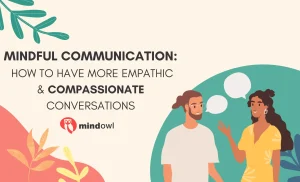Jewish Mental Health: Navigating Faith And Well-Being
In this article, we explore the topic of Jewish Mental Health and how it intersects with navigating faith and well-being. As someone who is part of the Jewish community, you may have wondered how your faith and beliefs can impact your mental well-being and what resources are available to support you on this journey. Whether you are seeking guidance on the relationship between Judaism and mental health, or looking for practical advice on taking care of your mental well-being within your religious framework, this article aims to provide you with valuable insights and tools to navigate these important aspects of your life.
Understanding Jewish Mental Health
Introduction to Jewish Mental Health
Jewish mental health refers to the well-being and psychological state of individuals within the Jewish community. It encompasses the intersection of faith and mental health, as well as the unique challenges faced by Jewish individuals. Recognizing the importance of mental health within the Jewish community is key to providing appropriate support and resources for those in need.
The Intersection of Faith and Mental Health
Judaism, like many other religions, holds a significant role in the lives of its followers. For Jewish individuals, their faith often provides a framework for their understanding of the world, including mental health. Jewish perspectives on mental health recognize the importance of a holistic approach, where spirituality, community, and mental well-being are interconnected. Understanding and incorporating these spiritual dimensions can be an essential aspect of mental health support for Jewish individuals.
Unique Challenges Faced by Jewish Individuals
Jewish individuals may face unique challenges when it comes to mental health due to various factors. History of persecution, intergenerational trauma, and the pressure to conform to societal expectations can contribute to mental health issues. Additionally, the strong emphasis on community and family may create a sense of responsibility or guilt in seeking help for mental health concerns. It is crucial to acknowledge and address these specific challenges to ensure that mental health support is tailored to the needs of the Jewish community.
Importance of Mental Health in the Jewish Community
Mental health is of utmost importance to the overall well-being of individuals within the Jewish community. Taking care of one’s mental health enables individuals to lead fulfilling lives and contribute positively to their families and communities. Recognizing the significance of mental health means embracing a culture of support, education, and destigmatization. By prioritizing mental health, the Jewish community can foster an environment of understanding, compassion, and resilience for all its members.
Traditional Jewish Beliefs and Mental Well-Being
Jewish Perspectives on Mental Health
Traditional Jewish beliefs emphasize the importance of mental well-being and acknowledge the challenges individuals may face. Judaism recognizes that mental illness is a real and valid struggle that affects many people. It encourages compassion, understanding, and support for those dealing with mental health issues. By viewing mental health through a Jewish lens, individuals can seek guidance and find solace within their faith.
Incorporating Spirituality in Therapy
For many Jewish individuals, spirituality plays a vital role in their mental well-being. Integrating spirituality into therapy can be an effective approach to healing and recovery. Therapists who are knowledgeable about Jewish customs and beliefs can guide clients in incorporating their faith into the therapeutic process. This integration allows for a more holistic and personalized approach to mental health treatment.
Role of Prayers and Rituals in Coping with Mental Health Issues
Prayers and rituals hold a significant place in Jewish traditions and can provide comfort and solace during times of mental distress. Engaging in prayer, reciting Psalms, or participating in other religious rituals can offer a sense of connection, purpose, and hope. These practices can serve as coping mechanisms and sources of strength for Jewish individuals navigating mental health challenges.
Common Mental Health Issues in the Jewish Community
Depression and Anxiety
Depression and anxiety are widespread mental health issues that can affect individuals within the Jewish community. The pressures of daily life, societal expectations, and historical trauma may contribute to the development of these conditions. It is crucial to recognize the signs and symptoms of depression and anxiety and provide appropriate support, resources, and treatment options to help those in need.
Substance Abuse and Addiction
Like any other community, substance abuse and addiction can affect Jewish individuals. Factors such as social and cultural norms, stress, and emotional challenges may contribute to the development of substance abuse issues. Addressing substance abuse within the Jewish community requires a multi-faceted approach that incorporates faith, education, support, and access to quality addiction treatment services.
Eating Disorders
Eating disorders can be prevalent within the Jewish community, with individuals striving to meet societal expectations of body image, particularly during holidays and celebrations. The pressure to conform to cultural norms and maintain a specific appearance can contribute to the development of eating disorders. Raising awareness, providing education, and breaking the stigma surrounding these disorders are crucial steps towards supporting Jewish individuals with eating disorders.
Post-Traumatic Stress Disorder (PTSD)
Jewish individuals may have experienced historical and intergenerational trauma, which can contribute to the development of post-traumatic stress disorder (PTSD). Holocaust survivors, their descendants, and individuals affected by other traumatic events may be at risk. Creating a safe space to address and discuss these traumas and providing trauma-informed care are essential for the mental well-being of Jewish individuals.
Obsessive-Compulsive Disorder (OCD)
Obsessive-Compulsive Disorder (OCD) can affect individuals within the Jewish community, as it does in other populations. Often, religious rituals and practices can become triggers or be misunderstood as symptoms of OCD. By educating both the community and mental health professionals about OCD, individuals can receive appropriate support and treatment while respecting their religious beliefs and practices.
Suicide and Self-Harm
Mental health issues can sometimes lead to feelings of hopelessness and despair, putting individuals at risk of suicide and self-harm. It is essential to remove the stigma surrounding these topics and create a supportive environment where individuals feel comfortable seeking help. Promoting education, awareness, and early intervention can make a significant difference in saving lives within the Jewish community.
Addressing Stigma and Seeking Help
Dealing with Stigma Around Mental Health
Stigma surrounding mental health can prevent individuals from seeking the help they need. Within the Jewish community, stigma can be influenced by cultural and religious beliefs, fear of judgment, and misconceptions about mental health. Working towards eliminating stigma involves open conversations, education, and raising awareness about the importance of mental health and seeking help when needed.
Importance of Education and Awareness
Educating the Jewish community about mental health is crucial for breaking down barriers and promoting understanding. By providing accurate information about mental health conditions, treatment options, and available resources, individuals can make informed decisions and better support those struggling with mental health challenges. Increasing awareness can help reduce stigma and encourage a culture of openness and compassion within the community.
Supportive Resources Within the Jewish Community
The Jewish community offers various resources to support individuals with mental health concerns. Synagogues often provide pastoral support, counseling services, and educational programs. Jewish organizations and community centers may offer support groups, referrals to therapists specialized in Jewish mental health, and helplines. By fostering a comprehensive network of resources, the Jewish community can ensure that individuals have access to the support they need.
Encouraging Help-Seeking Behavior
Encouraging help-seeking behavior is paramount in promoting mental health in the Jewish community. Emphasizing that seeking help is a sign of strength and courage, rather than weakness, can make a significant difference. Providing safe spaces and promoting mental health literacy allows individuals to feel comfortable reaching out for support when facing mental health challenges.
Community Support and Mental Health Programs
Synagogue-Based Mental Health Programs
Synagogues can play a vital role in promoting mental health and well-being within the Jewish community. By offering mental health programs, support groups, and educational workshops, synagogues can create a safe and inclusive space for individuals to learn, share experiences, and receive support. Engaging clergy members who have received mental health training can also provide spiritual guidance and support to those struggling with mental health issues.
Jewish Counseling Centers and Therapists
Jewish counseling centers and therapists who specialize in Jewish mental health are valuable resources for the community. These professionals have a deep understanding of Jewish culture, customs, and practices, allowing them to provide culturally sensitive and relevant support. Access to therapists who are knowledgeable about Jewish values and traditions helps ensure that individuals receive mental health care that aligns with their beliefs and experiences.
Peer Support Groups
Peer support groups offer a valuable avenue for individuals to connect with others who share similar experiences and challenges. Within the Jewish community, peer support groups can provide a sense of connection, understanding, and validation. These groups offer a non-judgmental space for individuals to share their stories, seek advice, and receive support from others who may have faced similar mental health issues.
Mental Health Initiatives in Educational Institutions
Educational institutions within the Jewish community can play an essential role in promoting mental health awareness and resilience. By implementing mental health initiatives, including training programs, workshops, and counseling services, educational institutions prioritize the well-being of their students. These initiatives also create a culture where mental health is destigmatized, and students feel safe seeking help when needed.
Holistic Approaches to Jewish Mental Health
Incorporating Mind-Body Connection
Recognizing the intricate connection between the mind and body is crucial in promoting mental health within the Jewish community. Engaging in activities that promote physical well-being, such as exercise, yoga, or meditation, can positively impact mental well-being. Incorporating mind-body practices into daily routines allows individuals to nurture their mental health while honoring their Jewish values and traditions.
Music and Art Therapy in Jewish Mental Health
Music and art therapy can be powerful tools in Jewish mental health. Expressing emotions and experiences through creative outlets allows individuals to explore and process their feelings. Incorporating Jewish music, stories, or symbols in therapy can bring an added layer of familiarity and spiritual connection. Music and art therapy provide alternative pathways for healing and self-expression within the Jewish community.
Healing through Torah Study
For many Jewish individuals, engaging in Torah study can be a source of comfort and spiritual healing. Studying sacred texts, discussing their teachings, and finding personal relevance can offer insight and guidance in navigating mental health challenges. Integrating Torah study within mental health support programs allows individuals to draw strength and solace from their faith while addressing their emotional well-being.
Promoting Self-Care and Well-Being
Promoting self-care and well-being is a crucial aspect of Jewish mental health. Encouraging individuals to prioritize self-care activities, such as setting boundaries, engaging in hobbies, or seeking professional support, empowers them to take charge of their mental well-being. By promoting self-care practices within the Jewish community, a culture of self-compassion, resilience, and self-awareness can be cultivated.
Crisis Intervention and Emergency Services
Hotlines and Emergency Contacts
Hotlines and emergency contacts provide immediate support for individuals in crisis situations. Within the Jewish community, it is essential to have dedicated helplines and emergency contacts that are sensitive to Jewish customs and beliefs. These resources allow individuals to reach out for help during times of distress, ensuring timely intervention and support.
Crisis Intervention Training for Clergy
Clergy members often serve as trusted figures within the Jewish community. Training clergy members in crisis intervention equips them with the skills and knowledge to provide crucial support during mental health crises. Clergy can offer spiritual guidance, refer individuals to appropriate mental health professionals and resources, and provide a compassionate presence during challenging times.
Mental Health First Aid in the Jewish Community
Mental Health First Aid training programs can be instrumental in promoting early intervention and support within the Jewish community. By training individuals to recognize the signs and symptoms of mental health issues, mental health first aid equips community members with the skills to provide initial support and referrals. Mental Health First Aid programs tailored to the Jewish community can enhance cultural sensitivity and responsiveness.
Collaboration with Mental Health Professionals
Collaboration between mental health professionals and the Jewish community is essential in crisis intervention and emergency services. Establishing partnerships and networks with mental health organizations, hospitals, and treatment centers ensures a coordinated and holistic approach to addressing mental health crises. This collaboration helps eliminate barriers to effective care and ensures that individuals receive the support they need during emergencies.
Cultural Competence in Mental Health Services
Understanding Jewish Cultural Practices
Cultural competence in mental health services requires an understanding of Jewish cultural practices and beliefs. Mental health professionals must familiarize themselves with Jewish customs, traditions, and values to provide appropriate and sensitive care. Recognizing the role of faith, family, and community in Jewish individuals’ lives allows mental health professionals to tailor treatment plans and interventions accordingly.
Addressing Religious and Dietary Considerations
Addressing religious and dietary considerations is crucial in providing culturally competent mental health services to Jewish individuals. Awareness of kosher dietary practices, Jewish holidays, and specific religious observances ensures that treatment plans respect individuals’ beliefs and practices. Mental health professionals can collaborate with individuals and their families to find solutions that honor their religious and dietary considerations while prioritizing mental well-being.
Creating Inclusive and Safe Spaces for Jewish Individuals
Creating inclusive and safe spaces for Jewish individuals within mental health settings is vital. This includes addressing any potential biases or prejudices and ensuring that the therapeutic environment is free from judgment or discrimination. Collaborating with individuals and the Jewish community to create culturally sensitive environments fosters trust, openness, and a sense of belonging for individuals seeking mental health support.
Training Mental Health Professionals in Jewish Sensitivity
Mental health professionals need to receive training in Jewish sensitivity to better understand and support Jewish individuals. Continuing education programs, workshops, and seminars that focus on Jewish mental health equip mental health professionals with the knowledge and skills necessary to provide culturally competent care. Ongoing training ensures that mental health professionals stay informed about the unique needs and challenges faced by Jewish individuals.
The Role of Family and Community
Family Dynamics and Mental Health
Family dynamics play a significant role in the mental health of individuals within the Jewish community. Supportive and nurturing family relationships can promote positive mental health outcomes, while strained or dysfunctional dynamics may contribute to mental health challenges. Acknowledging the influence of family dynamics and providing family therapy or resources can foster healthier and more resilient family units.
Supportive Role of Jewish Community
The Jewish community provides a support network that plays a crucial role in individuals’ mental well-being. Synagogues, community organizations, and cultural events offer opportunities for connection, belonging, and social support. By nurturing a sense of community, Jewish individuals have access to resources, friendships, and a broader support network that contributes to their mental health.
Intergenerational Trauma and Healing
Many Jewish individuals carry the weight of intergenerational trauma, particularly stemming from the Holocaust. Acknowledging and addressing this trauma is essential for healing and mental well-being. Through intergenerational healing practices, therapeutic interventions, and support groups, individuals can navigate the effects of trauma and build resilience within their families and communities.
Building Connectedness and Resilience
Building connectedness and resilience within the Jewish community is vital to promoting mental health. By fostering meaningful relationships, encouraging open dialogue, and providing opportunities for community engagement, individuals can cultivate a sense of belonging and social support. Building resilience equips individuals with the tools to navigate challenges and cope with stressors, contributing to their overall mental well-being.
Future Directions and Challenges
Advancing Mental Health Research within the Jewish Context
Advancing mental health research within the Jewish context is crucial for better understanding the unique challenges and needs faced by Jewish individuals. Research can inform the development of evidence-based interventions, policies, and practices tailored to the Jewish community. By prioritizing research, we can continually improve mental health support and outcomes within the Jewish community.
Overcoming Barriers to Access and Affordability
Ensuring access to mental health services and addressing affordability concerns are ongoing challenges within the Jewish community. Language barriers, lack of insurance coverage, and limited mental health resources in certain geographical areas can create barriers to accessing appropriate care. It is essential to work towards reducing these barriers and advocating for accessible and affordable mental health services for all Jewish individuals.
Promoting Mental Health Activism and Advocacy
Promoting mental health activism and advocacy within the Jewish community can create lasting change. By raising awareness, challenging stigma, and advocating for policy changes, individuals and organizations can work together to prioritize mental health and well-being. A united front of mental health activists can strive to ensure that the Jewish community receives the support and resources it deserves.
Continued Development of Community Resources
Continuing to develop and expand community resources is essential for supporting Jewish individuals’ mental health. This includes investing in mental health programs, support groups, educational initiatives, helplines, and accessible treatment options. By continuously improving and expanding community resources, the Jewish community can create an environment of support, understanding, and resilience for all its members.
In conclusion, understanding Jewish mental health requires recognizing the intersection of faith and mental well-being, acknowledging the unique challenges faced by Jewish individuals, and promoting the importance of mental health within the community. By incorporating traditional Jewish beliefs, addressing common mental health issues, combating stigma, and implementing supportive programs and initiatives, the Jewish community can foster a culture of compassion, inclusion, and resilience. Continual research, collaboration, and advocacy will pave the way for a brighter future that prioritizes the mental health and well-being of all Jewish individuals.

















